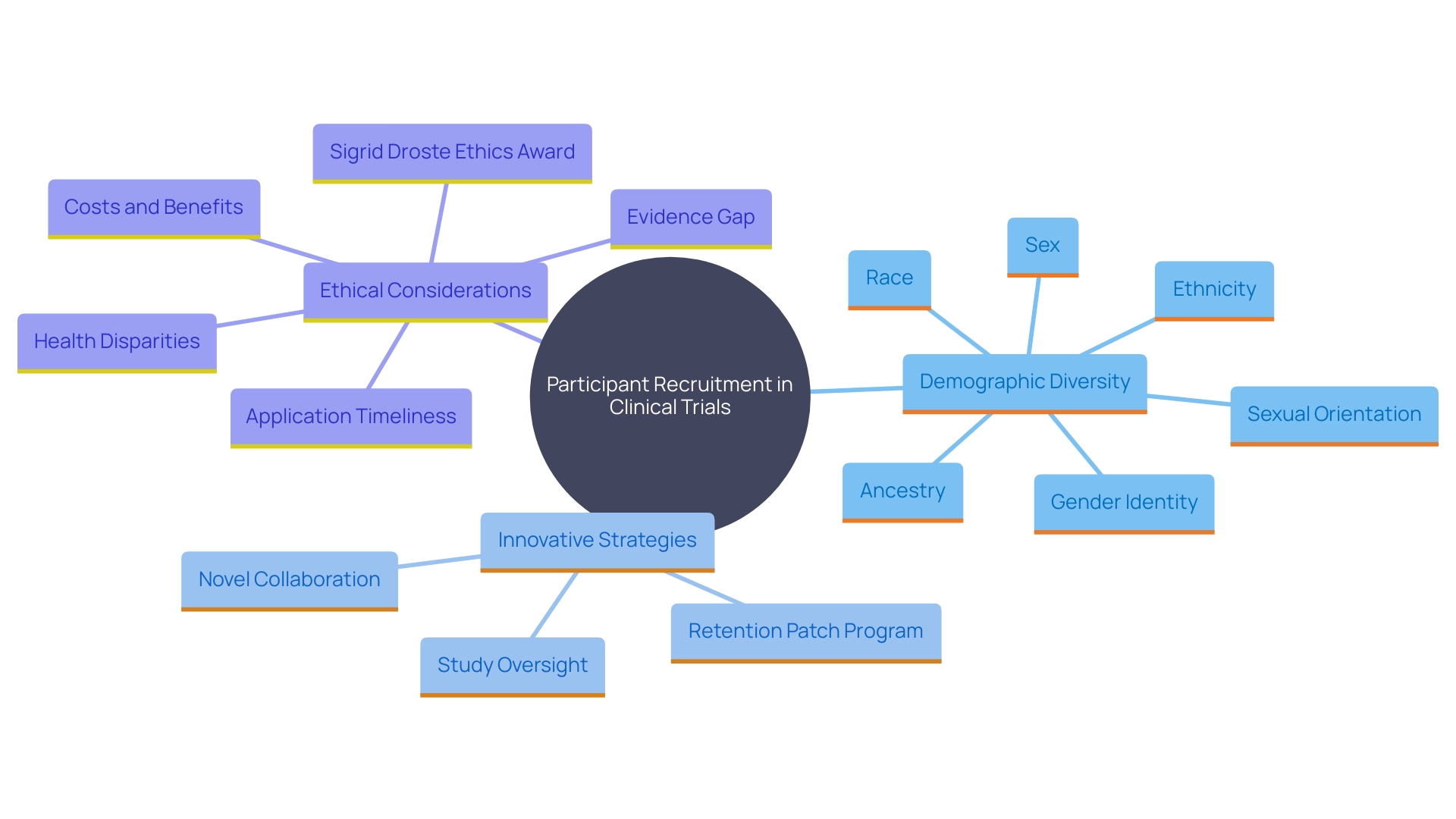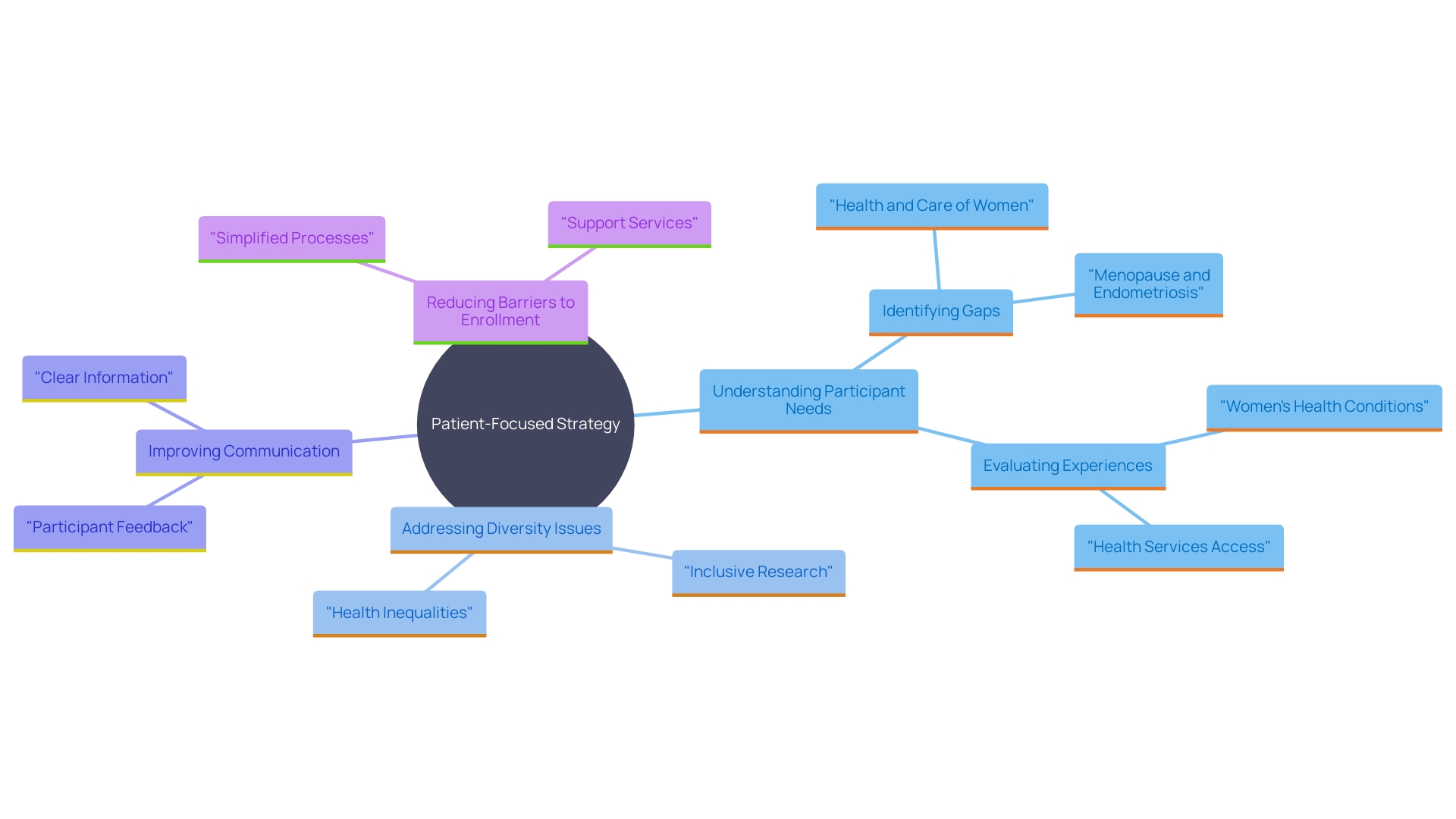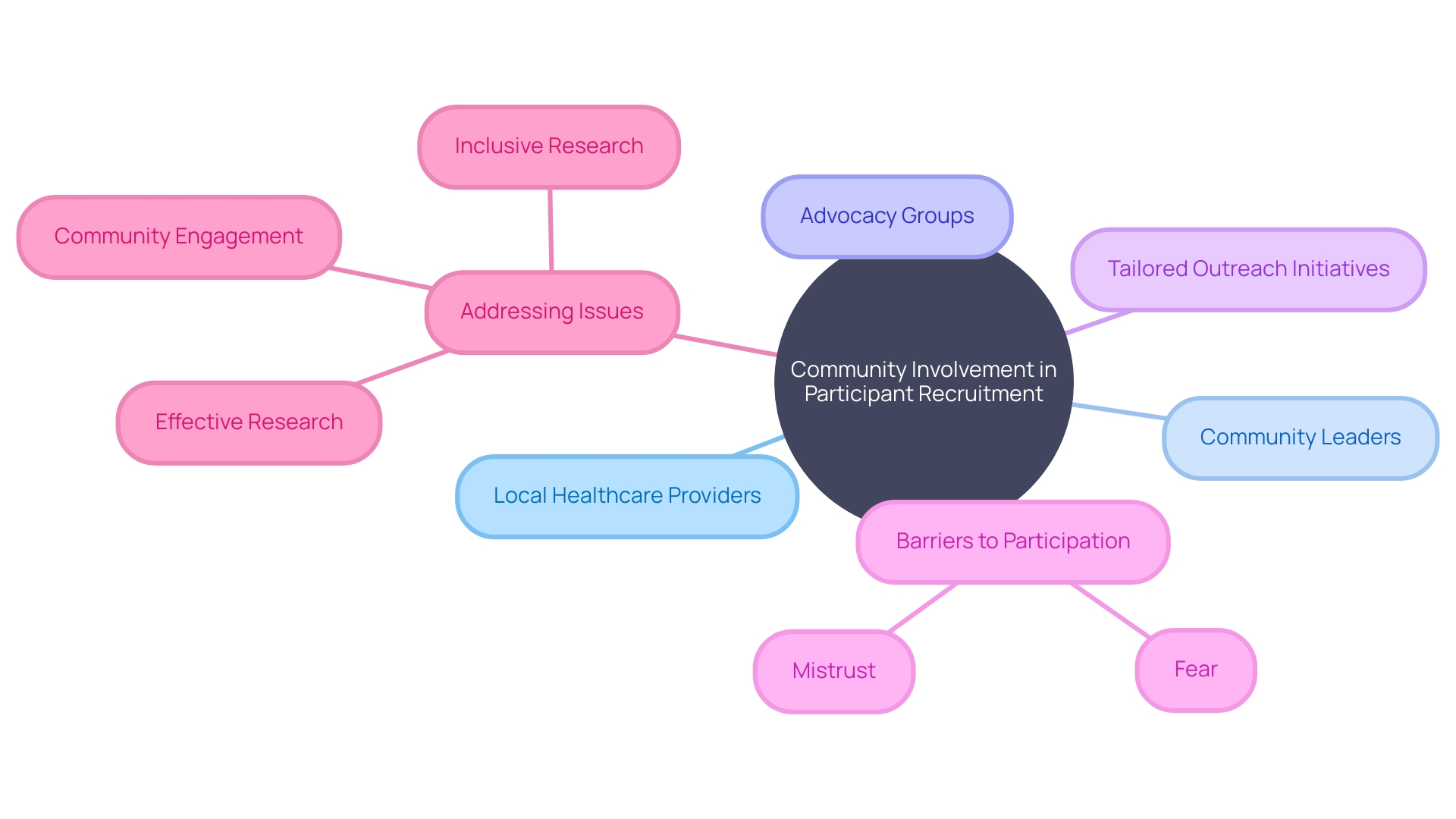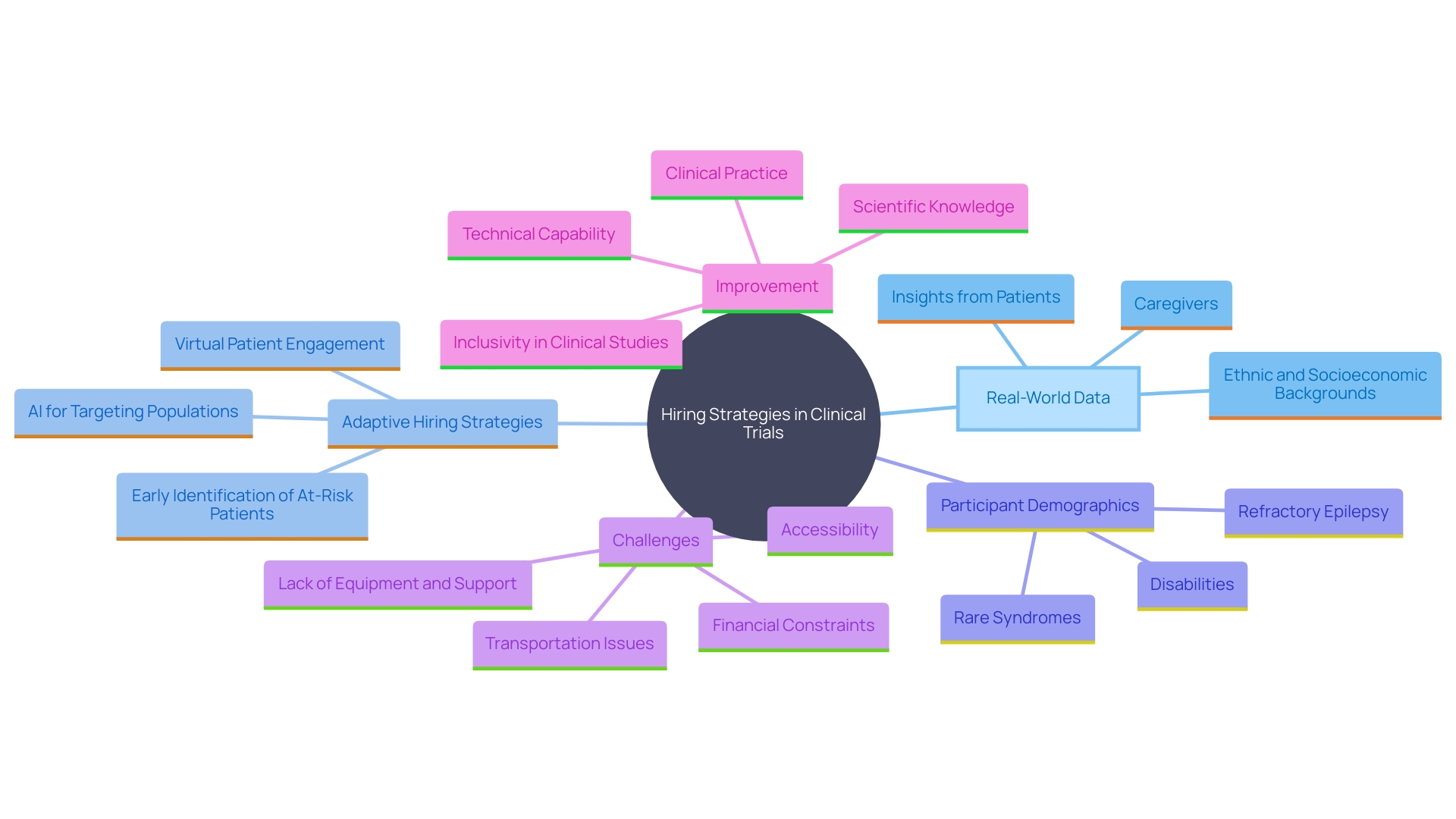Introduction
Effective patient recruitment is a cornerstone of successful clinical trials, particularly in diverse regions like Latin America. Ensuring the inclusion of a representative patient population enriches the validity and generalizability of the research findings, offering insights into how treatments may perform across different demographics. This article delves into the critical importance of innovative and ethical recruitment strategies, highlighting approaches such as the Retention Patch Program and the recognition of ethical practices through awards like the Sigrid Droste Ethics Award.
Additionally, it explores the significance of adopting patient-centric approaches, leveraging technology, and continuous evaluation to optimize recruitment processes and ensure the inclusivity and success of clinical trials.
The Importance of Effective Patient Recruitment Strategies
Efficient participant recruitment is a cornerstone of successful clinical trials, particularly in diverse areas like Latin America. Ensuring the inclusion of a representative group of individuals enriches the validity and generalizability of the research findings, offering insights into how treatments may perform across different demographics. Research highlights the importance of accurately representing healthcare populations, as genetic and ethnic variations can affect treatment outcomes, dosage requirements, and side effects.
Innovative strategies are crucial for engaging a broad demographic. One notable approach is the Retention Patch Program, which has shown success in pediatric studies by using engagement methods that improve retention rates. Youngsters and adolescents engaged in research studies can gather patches as they attain milestones, fostering a feeling of accomplishment and promoting ongoing involvement.
Furthermore, the moral factors in participant selection cannot be disregarded. The Sigrid Droste Ethics Award acknowledges important contributions to ethics in Health Technology Assessment (HTA), highlighting the significance of ethical practices in research. By emphasizing ethical hiring approaches, researchers can cultivate trust and collaboration from varied participant groups, ultimately improving the quality and effect of medical studies.
In summary, implementing strong and ethically responsible hiring methods is crucial for the success of research studies in Latin America. These efforts not only help in meeting enrollment targets but also ensure that the research findings are relevant and applicable to a wider population, contributing to better health outcomes and improved patient care.

Patient-Centric Approaches in Clinical Trial Recruitment
Embracing a patient-focused strategy is crucial for building trust and guaranteeing involvement in research studies. This involves understanding the needs, preferences, and concerns of potential participants. As National Voices highlights, the lack of diversity in clinical trial participants is a longstanding challenge, with most participants often not representing the diverse populations affected by the conditions being studied. Addressing this requires a multifaceted approach that includes improving communication, reducing practical barriers, and fostering an inclusive research culture.
Integrating perspectives from individuals receiving care into the design and execution of participant acquisition strategies allows researchers to develop study protocols that are more attractive and attainable, thus enhancing enrollment rates and participant contentment. This is backed by the results from Advarra’s 2023 Study Activation Survey, which highlights the influence of participant involvement and the significance of utilizing technology to simplify enrollment procedures.
Furthermore, the inclusion of diverse voices in clinical studies can be enhanced by addressing attitudinal, communication, and practical barriers. For example, the utilization of real-world data (RWD) from electronic health records and reports from individuals can provide a more comprehensive perspective on experiences, assisting in the identification of appropriate study participants and guiding more tailored selection strategies.
Ultimately, patient-focused enrollment not only boosts participation but also enhances the quality of the data gathered, resulting in more dependable and generalizable findings. By prioritizing participant involvement and addressing the obstacles to engagement, research studies can become more inclusive, representative, and ultimately more successful in advancing medical knowledge and enhancing outcomes for individuals.

Community Engagement and Outreach Strategies
Community involvement is crucial for enhancing participant recruitment in research studies. Successful cooperation with local healthcare providers, community leaders, and advocacy groups can greatly increase awareness and promote involvement. Tailoring outreach initiatives to fit the cultural and social contexts of specific communities fosters trust and leads to more diverse and representative study populations. A report highlighted that barriers to participation often include fear, mistrust, and a lack of outreach. Tackling these concerns via community involvement can guarantee more inclusive and effective studies, connecting the divide between research and individual requirements.

Evaluating the Effectiveness of Recruitment Strategies
Ongoing assessment of hiring strategies is vital for enhancing clinical trial processes. Employing real-world data (RWD) from electronic health records (EHRs), claims data, and reported outcomes (Pros) offers a comprehensive perspective on individuals' medical histories and treatment experiences. This data can be invaluable for identifying successful hiring strategies and areas needing improvement. For instance, incorporating technology solutions to extract unstructured data from patient records can improve the accuracy of patient identification for study participation.
Adaptive hiring strategies, informed by ongoing analysis of enrollment data, participant feedback, and demographic trends, can address specific challenges and improve efficiency. The All of Us Research Program exemplifies this approach by enrolling a diverse group of participants, with 77% from historically underrepresented communities. Such initiatives not only enhance hiring but also guarantee that medical studies are more inclusive and representative.
Addressing barriers, such as those faced by rural and low-income communities, is crucial. By leveraging advanced technologies to streamline processes, clinical trials can become more accessible and efficient. This approach mitigates common challenges, such as technology fatigue and integration issues, enhancing the quality of data collected and analyzed. Ultimately, continuous evaluation and adaptive strategies enable researchers to overcome recruitment hurdles and maintain effective enrollment throughout the study duration.

Conclusion
The significance of effective patient recruitment strategies in clinical trials, particularly in Latin America, cannot be overstated. Ensuring a representative patient population not only enhances the validity of research findings but also broadens the understanding of treatment effects across diverse demographics. The integration of innovative methods, such as the Retention Patch Program, demonstrates the potential for engaging participants and improving retention rates, especially among younger populations.
Moreover, the emphasis on ethical practices in recruitment, exemplified by initiatives like the Sigrid Droste Ethics Award, reinforces the vital role of trust and cooperation in clinical research. By prioritizing ethical considerations, researchers can cultivate a more inclusive environment that encourages participation from varied patient groups, ultimately leading to more impactful and applicable results.
Adopting patient-centric approaches is essential for addressing the longstanding challenges related to diversity in clinical trial participation. Understanding and mitigating barriers through improved communication and tailored outreach strategies can significantly enhance enrollment rates and participant satisfaction. Incorporating real-world data allows for a more comprehensive understanding of patient experiences, leading to more effective recruitment strategies.
Finally, continuous evaluation of recruitment efforts is critical for optimizing clinical trial processes. By leveraging real-world data and adaptive strategies, researchers can identify successful tactics and address specific challenges, ensuring that recruitment remains efficient and inclusive. Ultimately, these concerted efforts not only improve the quality of data collected but also advance medical knowledge and patient care, paving the way for better health outcomes.




